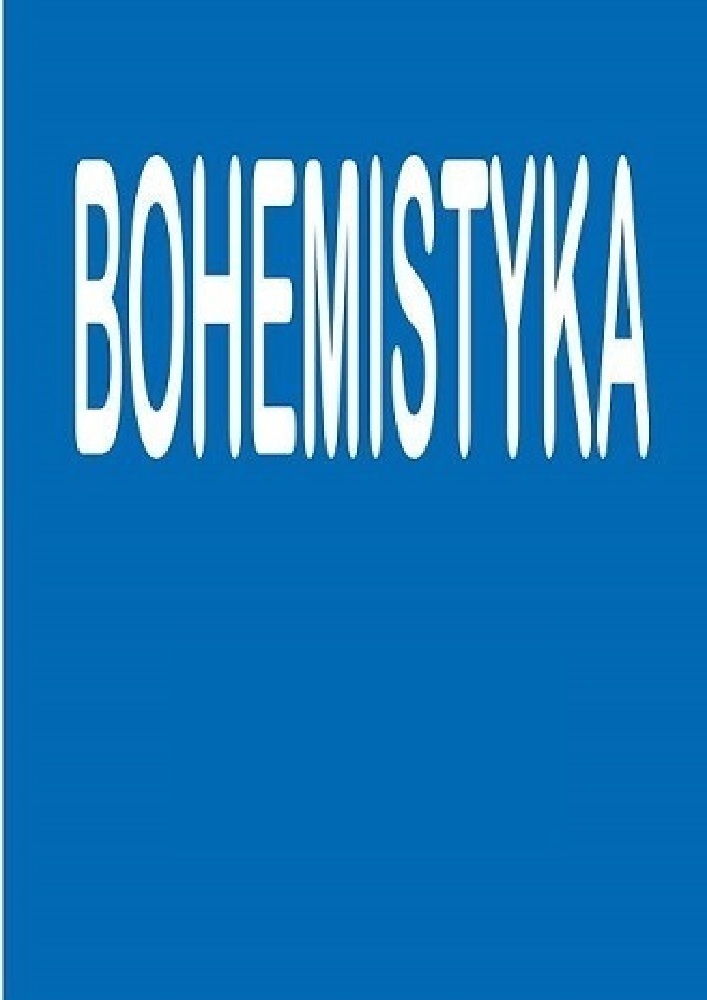Abstrakt
Research on the use of verb tenses in Czech subordinate clauses is based on the notions of absolute and relative tense and on the distinction between content and adjunct clauses. It is generally agreed that absolute tenses are used in adjunct clauses, whereas relative tenses are typically used in content clauses. Based on an analysis from the Czech National Corpus, I will demonstrate that, in addition to the assumed use of tenses and in contrast to their usage in English, there are also variations in their use: in content clauses, even tenses selected from the speaker’s perspective are used in certain cases, and in certain adjunct clauses relative tenses may also be used.
Bibliografia
Bauer, Jaroslav. (1965). Souvětí s větami obsahovými. Sborník prací filosofické fakulty brněnské university: Řada jazykovědná, 16(A13), pp. 55-66.
Bauer, Jaroslav, Grepl, Miroslav. (1980). Skladba spisovné češtiny. Praha: Státní pedagogické nakladatelství.
Bečka, Josef Václav. (1975). O relativních a subjektivních časech v češtině. Naše řeč, 58(4), pp. 186-195.
Biber, Douglas, Johansson, Stig, Leech, Geoffrey, Conrad, Susan, Finegan, Edward. (1999). Longman Grammar of Spoken and Written English. London: Longman.
Comrie, Bernard. (1985). Tense. Cambridge: Cambridge University Press. https://doi.org/10.1017/CBO9781139165815 DOI: https://doi.org/10.1017/CBO9781139165815
SYN v8: Český národní korpus - SYN v8 [online]. Praha: Ústav Českého národního korpusu FF UK. https://www.korpus.cz
InterCorp v13: Český národní korpus - InterCorp v13 [online]. Praha: Ústav Českého národního korpusu FF UK. https://www.korpus.cz.
Daneš, František, Grepl, Miroslav, Hlavsa, Zdeněk (eds.). (1987). Mluvnice češtiny: 3, Skladba. Praha: Academia.
Fabricius-Hansen, Cathrine. (2004). Wessen Redehintergrund? Reportive Modalität aus textorientierter kontrastiver Sicht (Deutsch - Norwegisch - Englisch). In: Leirbukt, Oddleif (ed.), Tempus/Temporalität und Modus/Modalität im Sprachvergleich. Tübingen: Stauffenburg Verlag, pp. 119-155.
Gennari, Silvia. (1999). Embedded Present Tense and Attitude Reports. In: Matthews, Tanya, Strolovitch, Devon (eds.), Semantics and Linguistic Theory (SALT) 9, Ithaca: Cornell University, pp. 91-108. https://doi.org/10.3765/salt.v9i0.2818 DOI: https://doi.org/10.3765/salt.v9i0.2818
Grepl, Miroslav, Karlík, Petr. (1989). Skladba spisovné češtiny. Praha: SPN.
Grepl, Miroslav, Karlík, Petr. (1998). Skladba češtiny. Olomouc: Votobia.
Hajičová, Eva, Panevová, Jarmila, Sgall, Petr. (1971). The Meaning of Tense and Its Recursive Properties. Philologica Pragensia, 14, pp. 1-15.
Huddleston, Rodney, Pullum, Geoffrey K. (2002). The Cambridge Grammar of the English Language. Cambridge: Cambridge University Press. https://doi.org/10.1017/9781316423530 DOI: https://doi.org/10.1017/9781316423530
Karlík, Petr. (2002). Obsahová věta (kompletivní věta). In: Karlík, Petr - Nekula, Marek, Pleskalová, Jana (eds.), Encyklopedický slovník češtiny. Praha: NLN., p. 522.
Karlík, Petr. (2017). Obsahová věta (kompletivní věta). In: Karlík, Petr - Nekula, Marek -Pleskalová, Jana (eds.), CzechEncy - Nový encyklopedický slovník češtiny [online]. Brno: Masarykova univerzita. Cit. 4. 10. 2021. Https://www.czechency.org/slovnik/OBSAHOVÁ VĚTA.
Koutová, Marta. (2018). Užití slovesného času ve vedlejších větách obsahových v češtině. Dissertation, Faculty of Arts, Charles University (ms.).
Koutová, Marta. (2019). Původci sdělení v souvětích s větami obsahovými - prvotní konatel a mluvčí. Korpus - gramatika - axiologie, 10, pp. 59-70.
Koutová, Marta. (2021). Užití slovesného času ve vedlejších větách obsahových. Naše řeč, 104 (2), pp. 100-116.
Kubota, Yusuke, Lee, Jungmee, Smirnova, Anastasia, Tonhauser, Judith. (2009). On the cross-linguistic interpretation of embedded tenses. In: Riester, A., Solstad, T. (eds.), Proceedings of Sinn und Bedeutung 13. Stuttgart: University of Stuttgart, pp. 307-320.
Panevová, Jarmila. (1971a). Relativní a rekurzívní vlastnosti významu času. In: Panevová, Jarmila - Benešová, Eva, Sgall, Petr, Čas a modalita v češtině [Acta Universitatis Carolinae: Philologica: Monographia, 34]. Praha: Universita Karlova, pp. 45-63.
Panevová, Jarmila. (1971b). Vedlejší věty obsahové. Slovo a slovesnost, 32(4), pp. 289-300.
Panevová, Jarmila, Sgall, Petr. (1971). Relativní čas. Slovo a slovesnost, 32(2), pp. 140-148.
Svoboda, Karel. (1970). Souvětí spisovné češtiny. Praha: SPN.
Svoboda, Karel. (1972). Souvětí spisovné češtiny. Praha: Univerzita Karlova.
Zagona, Karen. (2014). Sequence-of-tense and the features of finite tenses. In: Krämer, M., Ronai, S., Svenonius, P. (eds.). Nordlyd, 41(2), pp. 261-272. https://doi.org/10.7557/12.3419 DOI: https://doi.org/10.7557/12.3419
Licencja
Prawa autorskie (c) 2022 Marta Koutová

Utwór dostępny jest na licencji Creative Commons Uznanie autorstwa – Użycie niekomercyjne – Bez utworów zależnych 4.0 Międzynarodowe.




